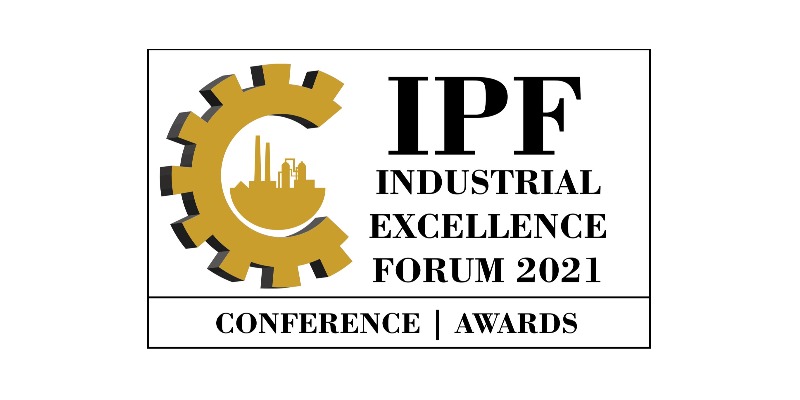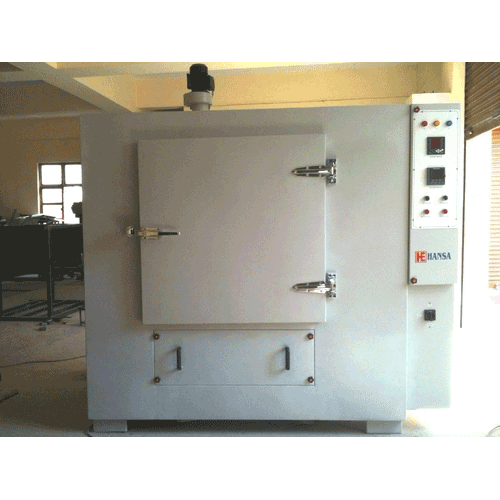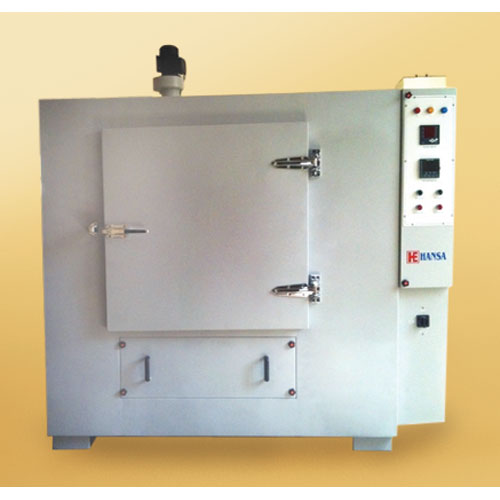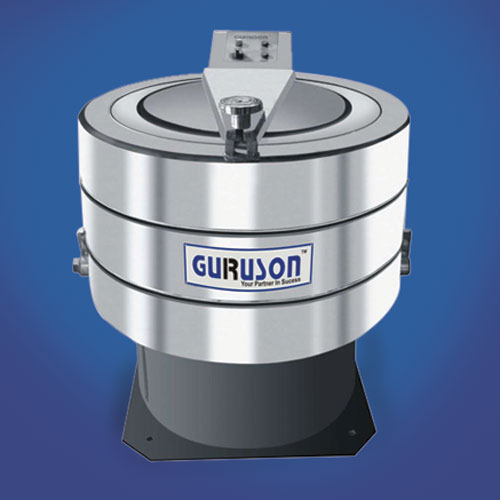Schedule a Call Back
First IPF Industrial Excellence Forum (IIEF) lauds innovations in 5 categories
 Industry News
Industry News- Jan 30,21

Industrial Products Finder (IPF), India’s largest circulated industrial magazine in its 49th year, hosted First IPF Industrial Excellence Forum (IIEF) which comprised of two major segments Conference and 5th IPF Industrial Excellence Awards, on January 15, 2021 virtually. During the event, 26 awards have been presented, from 5 categories in various segments, in recognising their achievements during the year.
IPF Industrial Excellence Forum 2021 was
held in the grand presence of Devendra Kumar Singh, Additional Secretary &
Development Commissioner (MSME) Ministry of Micro, Small, Medium Enterprises,
Government of India and Dr Ravi P Singh, Secretary General, Quality Council of
India and Madan Sabnavis, Chief Economist, CARE Ratings Ltd.
Every year IPF Awards are presented in
categories such as “Fastest Growing Manufacturing Companies†(under Rs 500
crores turnover) and “Promising Start-up of the Year†and “Entrepreneur of Year
(Female and Male)†- to recognise and appreciate the contribution of start-ups
and entrepreneurs in job creation and economic growth. Interestingly, this year
a new category of “Product Excellence†to laud product innovations was added.
Meanwhile, Smita Yashvant Ghaisas,
Chairperson and MD, Minilec India Pvt Ltd was the winner of the “IPF Female Entrepreneur
Of the Yearâ€Â, Ramesh Arora, Managing Director, Kwality Pharmaceuticals Ltd was
the “IPF Male Entrepreneur Of the Yearâ€Â, and Sheetal Talati Mehta, Owner,
Pushpa Industries was selected as “Promising Female Entrepreneur of the Yearâ€Â. “IPF
Promising Start-up of the Year†awards were presented to C And C Laser Engineering
Pvt Ltd, Mumbai, and Dhruv Agro Industries, Dhule (Maharashtra).
The winners were selected by a jury panel
comprising eminent personalities from the industry and engineering institute.
In his address, Guest of Honour,
Devendra Kumar Singh conveyed his gratitude for supporting government amid
this Covid crisis in whichever way possible, He expressed, “If we look back at
last 8 months, it gives us a sense of satisfaction as the way the industries
have responded well through manufacturing key safety products during the crisis
of Covid 19. Thus, there is a need to recognise new talent and innovations.
Forums like IIEF are always a welcome initiative and I compliment IPF for their
good work of recognising entrepreneurs and MSMEs.â€Â
Speaking about technology adoption and
assuring support to the MSME sector, He informed “Today adoption of technology
is inevitable for companies in their various processes. Fields like product
design and compliance demand advanced technology. Ministry of MSME has also
taken a few steps to empower MSME sector such as Udyam Registration after the
adoption of the new criteria of classification of MSMEs. There is a tremendous
opportunity to grow with the scope for ideas to investments. MSME sector can
seek benefits from the schemes such as Incubation & Design Schemes, Schemes
to support Capital Subsidy in Investment & Interest Subvention Scheme.
Further, according to the newly announced schemes under AatmaNirbhar Bharat,
schemes like Emergency Credit Line Guarantee Scheme (ECLGS), Fund of Funds and
Subordinate Debt scheme.â€Â
The second Guest of Honour, Dr Ravi P
Singh, Secretary General, Quality Council of India deliberated on the significance of quality of products and current quality trends. Enlightening
everyone on the quality, he said, “It is very much evident that the countries
in Europe, the US and Japan have helped their industries to invest on quality
are today known for their products globally. In India, there has been a
long-standing myth of cost versus quality. The industry has not realised so far
that quality helps you sustain in the market for a longer term. In India,
quality consciousness is changing and consumers are embracing the quality
products. India has been able to buck the trend of import substitution through
its own products in the industries like Pharmaceuticals, Automotive, PPE or
textile, LED among many others.â€Â
Elaborating on the current quality trend,
he said, “MSME, a backbone of developing India’s manufacturing story, has
embraced ‘Zero Defect Zero Effect’ in their manufacturing in a manner we have
not seen earlier. Consumers are also demanding precision equipment over basic
equipment. We have to keep up with this trend as soon as we will have to create a
system to build digital factories.â€Â
Dialogue for future
2020 was certainly an unusual year for
industries across the world (including India). There is no question that these
unusual times will carry over into 2021. Unusual does not necessarily mean bad;
it just means different. Often hidden within those differences are
opportunities. IPF hosted an engaging Panel Discussion themed at “Board
room Strategies to Face New Normalâ€Â.
The panel discussion was moderated by Subodh
Jindal, Global CEO, STEER Engineering. The panellists – comprising S
Sunil Kumar, Country President, Henkel India; Dr Babu Padmanabhan,
Founder & MD, STEER Engineering; Indradev Babu, MD, UCAM Pvt Ltd
& President, IMTMA(Indian Machine Tools Manufacturers Association) and Biswajyoti
Mandal, VP & Head- Technology, Schaeffler India.
In his opening remarks, Subodh Jindal
expressed, “While the economy is showing signs of revival in Q3 and Q4 of 2020,
the circumstances are not the same like before. We continue to have issues like
uncertainty in demand, supply side tantrums, labour availability, financial
constraints to name a few. It all depends on how the top management of the
companies deals with the same?’
S Sunil Kumar shared the new way of
approach that Henkel India experienced during the last 8 months. He stated,
“Our whole process and operations changed. 8 months earlier, we were a company,
primarily dependent on face-to-face meetings to build a healthy relationship with
all our clients. Moving completely to the online platform was difficult but we
have managed to now move to the new normal of online or virtual communication.â€Â
He also informed that the Henkel India invested in training its employees
heavily so that they are able to understand new systems and platforms to
exploit them well to reach their targets.
Indradev Babu, opined that companies
applied all that they have learned in the first 6 months after the first
lockdown. He stated, “There is a huge consumption of materials like steel,
copper, aluminium and is believed that it majorly accounts to China. While it
is also leading to a global cost increase. Further, it is also putting a spanner in
the works of the companies who want to supply and make up for their previous
losses.â€Â
“The market is very fluid and changing.
There is an opportunity for India to global,†he added.
Dr Babu Padmanabhan believed that the
companies are moving from effort-based performance management to
outcome(result)-based performance management. While sharing Talking on the automation
scenario being a threat to low-cost skilled labour in India, Dr Babu
Padmanabhan, believes, “The banking sector is the best example to this scenario
when 20 years ago the sector went to automation. Employees were then concerned
about losing jobs. Today it has proved to be win-win for both banks and even
customers. There may be a short-term effect but it will have a positive impact
among industries.â€Â
“In the per capita nominal GDP of India is
about $ 2100 per year per person which comes to about eighth of the world
average. This reflects that we don’t have enough money to pay for each other. This
is the result of our mundane jobs that can easily produce more productivity and
quality. With automation, if we can increase the food industry’s productivity by 10x
the unskilled labours can find lots of jobs. Thus, automation is not an enabler
rather than an impediment,†he added.
Speaking on automation in Indian industry
Dr Babu Padmanabhan stated, “It is a very complex situation on the ground to imbibe
automation. We are a developing nation surrounded by issues like population,
resource constraints to move up the ladder. In order for automation to move up
with the pace, human resources in India needs to be prepared for this. Upskilling
and training of the workforce by industry-government partnerships will help to
hasten human resources to be more ready for automation. A government policy
framework to help capital investment needed for automation will have a far-reaching the effect over the industry.â€Â
Dr Babu Padmanabhan also believes that
India needs more of ‘Develop in India’ coupled with ‘Make In India’. Competing
Indian products on a global level mean reaching the competency of product
development and quality which will come only after rigorous product research
and development in India.
Biswajyoti Mandal deliberated on having an automation plan as a long term process and not a short-term process. This will
be based on the processes of the company, which processes to be automated first
to seek benefits right away. He stated, “Automation has been in the industry
for long. The pandemic has pushed automation as a matter of top priority in the
business plans. While you look at bringing automation into business processes
and factory operations, every company should evaluate the socio-economic impact of
job losses and unemployability of unskilled labour and also should consider the cost of installation. Upgrading your systems can be managed in a phased manner
where you will try to address the low-hanging fruit fast and then slowly
migrate towards the journey. This comprises of a 5–10-year plan for any
company.â€Â
The opinion poll also observed hurdles to Make
In India Scheme. Almost 50 per cent attendees believed that ‘Less focus on
R&D and innovation’ is a major hurdle to the scheme.
Two engines are not firing
India has seen some hope of revival in the
late 2020 but has the challenge to continue such stride to reach pre-Covid level. The manufacturing industry has been hit due to lower production and drop in demand.
Madan Sabnavis, Chief Economist, CARE Ratings Ltd, delivered a special address
on the Indian economy and upcoming budget. He stated, “For the first time
Indian economy is shrinking after a long time and has registered negative
growth. Except for agriculture, all other sectors have suffered in their
production. Two major engines of investment and consumption are not firing. This
has fractured SMEs leading to rising unemployment bringing down consumption
impairing investments.â€Â
“Through investments are taking place, CMIE
data shows that it is down 30-40 per cent compared to last year. These
investments are mostly localised rather than being broad-based. We are looking
at broad-based investments to come.â€Â
SME Dialogue
Every crisis also brings with it
opportunities. Covid 19 has exposed supply chain vulnerabilities of global
firms due to their over-dependence on one country for manufacturing
requirements. As a result, MNCs are forced to look for an alternate manufacturing
destination to diversify their procurement. India - with its large domestic market
and strategic location - has the potential to attract big firms looking to relocate
manufacturing or diversify sourcing. At the same time, the Government of India
with its schemes like PLI and Ease-of-Business proposition is looking to
attract these foreign companies. If this happens, then how small & medium
enterprises (SMEs) - who are the backbone of the Indian manufacturing sector -
will benefit? The second Panel Discussion, with the theme of “Are Indian SMEs
ready for the future?â€Â, deliberated on issues like challenges &
opportunities before SMEs in the changing world, tips to be a part of the global
supply chain, benefits of government policies, etc.
The discussion was moderated by Saikat
Roy, Director - West, CARE Ratings while having on board eminent panellists
such as Anil Saboo, President, IEEMA (Indian Electrical &
Electronics Manufacturers Association) and MD, Elektrolites Power Pvt Ltd; Ashita
Gupta, Chairperson SME Chapter, MAIT, and COO, Smile Electronics Ltd; Mahesh
Desai, Chairman, EEPC India (Engineering Export Promotion Council of India),
and MD & CEO of Meera & Ceiko Pumps Pvt Ltd; Neeti Sharma,
Senior Vice President, TeamLease Services.
The discussion flagged off with a poll
which observed ‘inflation in commodity prices is the cost of concern’.
Saikat Roy took everyone through some key stats on the status of various sectors.
According to him, “Before the outbreak of pandemic, Budget 2020 had a fiscal
deficit of 3.5 per cent of GDP. Based on the first advance estimates, CARE Rating
has suggested that the fiscal deficit will move to 7.8 per cent of GDP.
Further on adding 1.1 lakh crore that accounts to GST shortfall and borrowing
on behalf of states, this number will look like 8.4 per cent of GDP.â€Â
He also shared current status with 15 key
data points. There are mostly year-on-year numbers while some are based on
April to November and April to October.
|
Current
status of production in India
|
|
|
Commercial Vehicles |
-57 |
|
Passenger
Vehicles |
-29.8 |
|
Air Conditioners |
-73.5 |
|
Cotton Yarn |
-33.7 |
|
Shampoo |
13.5 |
|
Steel |
-19.4 |
|
Coal |
-2.6 |
|
Cement |
-19.5 |
|
Agro Chemicals |
15 |
|
Printing
Machinery |
-56 |
|
Textile Machiney |
-29.3 |
|
Generators &
Actuators |
-29.3 |
|
Cumulative cargo
handled at ports |
-10.5 |
|
Broadband
Subscribers |
14.1
|
|
Bank Credit to
Manufacturing industry (Nov 19 to Nov 20) |
-0.7 |
|
Power
Consumption (Dec 2020) |
5 |
Keeping
a long-term goal of 5 Trillion economy, Indian SME sector has to be pulled out
of this setback. There is a lot to learn from economies of Japan, Thailand and
China as all of them have around 60 per cent of their business driven from SMEs
which led to a boom in their GDP. Ashita Gupta stated, “The 20 lakh crore
package rolled out by the government, only 50 per cent of the SME sector
availed that credit availability and benefit. Reason being 99 per cent of the
industries in India are micro industries These industries are not fighting for
sustainability but for scale. NBFC cannot merely reach all such industries and
to develop that reach all banking sector should aligned for making credit
available for building scale.â€Â
Engineering exports were hit badly due to
the pandemic. Mahesh Desai believes, “Indian SMEs suffered the most due
to supply chain disruption and economic lockdowns as they were already facing
problems and constraints for their growth. Atmanirbhar Bharat addressed various
ruptures, a result of Covid pandemic. This is a very commendable endeavour from
the part of the government.â€Â
“EEPC is expecting the government to support
for skill development and adoption of automation with digitisation. The new
mantra for SMEs is to produce quality goods and services in quantity for local
and also for global markets. They have to go Glocal (Global+Local). We need
more liberalisation with policies to attract FDI. To ease out norms for FDI
like lowering interest rates. Today, a huge base of containers are lined up at
ports and airports for transportation which is a matter of huge concern.
Projects like Sagarmala will help to build better and faster logistics.â€Â
Certification of Indian products by
international agencies will help find better global markets for exports and
will build better markets for Indian products, believes Desai.
Anil Saboo observed 2020 as
a year of transformation and learning. “With Atmanirbhar Bharat, it a great
opportunity for the Indian industry to ride this initiative for decades together.
Privatisation, freedom and competitive market are key focus areas in 2021.
IEEMA is focussing on 5 pillars such as localised manufacturing, digitalisation
and innovation, global penetration, enhancing capability by international
collaboration and focus on quality and productivity. Globally the electrical
market is worth the US $ 500 billion while India’s share is just less than 2 per
cent. Adopting the above practices, India can increase its share by 2.5 per
cent foreseeing a tremendous growth for SMEs.â€Â
According to Saboo, India needs to have a
cluster approach for better bulk sourcing and for better products at a
competitive price. India needs better reforms in labours, need to utilise women
population will help Indian markets to grow.
Neeti Sharma speaking about
the labour migration, informed, “Labour shortage issue is on its verge of
recovery. Industries have face challenges due to migration but remember Covid
is not a passing shower rather a climate change. This change will bring
structural reforms for productive and better paid jobs.â€Â
Speaking about upgrading workforce, she
shared, “69 per cent of the jobs that exist today will not exist after
automation and digitisation enter industries across. Training is needed to
make the workforce ready for the future. It is not that machines will completely
replace jobs but will create jobs in some other industries.â€Â
Gagandeep Singh, Manager – SME,
Western Regional Office, National Stock Exchange of India Limited in a Special
address deliberated on’ Advantages of Listing for SMEs to raise funds’. Singh
observes, “Promoters of the SMEs are regarded as ‘one man army’ while with time
Indian SMEs should consider decentralisation. Decentralised way of operations
is a beautiful way which many listed SMEs have realised and have become
successful listing at NSE and BSE. SMEs should also leverage capital markets
through listings. An SME can reach global investors and a small business located
at remote locations can also source capital for their business. Around 500
companies have been listed on NSE and BSE and have raised Rs 5000 crore on both
platforms.â€Â
This was followed by welcome address by Pratap
Padode, Editor of IPF and Founder & President, FIRST Construction Council,
and Unveiling of IPF Annual 2021. “We are very pleased to inform that
Industrial Products Finder has entered in its 50th year, since its
establishment in 1972. India has close to 6.8 million Udyog Aadhar registered
MSMEs and another 63 million MSMEs. This constitutes to almost 45 per cent of
the manufacturing output, 95 per cent of a number of industrial units, 48 per
cent of exports, 35 per cent of GDP and employ around 110 million people,
making MSMEs largest source of employment after agriculture sector.â€Â
Pratap Padode also unveiled 49th
Annual issue virtually during the evening.
Taking a note of some key concerns, he
highlighted, “Government needs to take a substantial look at reviving the sector.
Technology has come to the forefront in this pandemic and challenges in
operations are served by technological adoptions everywhere. Digital platforms
offer equal opportunities to everyone. The digital world requires 2 major
components- knowledge and capital. Somehow, they have become obstacles today.
Lowering the cost of digital platforms will help build the accessibility of these
platforms.â€Â
The eminent Jury for the IPF Awards 2021, who made the difficult task easier to select among top performers from diverse industries who made it through challenging market conditions. The Jury Panel comprised of B Sheshnath, CEO & MD, Walvoil Fluid Power India Pvt Ltd; Dr Sharmila Amin, MD, Bertling Logistics India Pvt Ltd; Prof. R Jayaraman, Head-Capstone Projetcs, Bhavan’s SP Jain Institute of Management and Research; Rajesh Nath, MD, German Engineering Federation (VDMA); Saikat Roy, Director-West, CARE Ratings, Srinivas Sirupa, Head-SCM, L&T Power; Subba Bangera, Director, Plastics Machinery Manufacturers Association of India (PMMAI); Subodh Jindal, Global CEO, STEER Engineering, Co Founder& CBO, Learnings.com; J Pande, Deputy Director General, Indian Electrical & Electronics Manufacturers Association (IEEMA); Vijayanand Choudhury, Global Procurement Head, Tata Technologies and Vikas Bajaj, President, Association of Indian Forging Industry (AIFI) and MD and CEO of Bajaj Motors Limited.
Winners of IPF Industrial Excellence
Awards 2021
|
Fastest
Growing Companies Awards |
|
|
Categories |
Winner |
|
Agriculture
& Food Processing (Large) |
Nath Bio-Genes
(India) Limited |
|
Agriculture
& Food Processing (Medium) |
Cupid Limited |
|
Agriculture
& Food Processing (Small) |
Oceanic Foods
Ltd |
|
Auto Ancillary
(Large) |
Precision
Camshafts Limited |
|
Electrical and
Electronics (Small) |
Ultra Wiring
Connectivity System Limited |
|
Engineering
(Medium) |
Thejo
Engineering Limited |
|
Engineering
(Small) |
Dhanaprakash
Industrial Corporation |
|
Fertilizer and
Chemical (Small) |
Chemcrux
Enterprises Limited |
|
Pharma (Medium) |
Syncom
Formulations India Limited |
|
Plastic Paper
& Packaging (Large) |
Emmbi Industries
Limited |
|
Plastic Paper
& Packaging (Medium) |
Captain
Polyplast Limited |
|
Plastic Paper
& Packaging (Small) |
National Plastic
Technologies Ltd. |
|
Steel & Non
Ferrous Metals (Small) |
Captain
Polyplast Limited |
|
Product
Excellence |
|
|
Category |
Winner |
|
Electrical &
Electronics |
Stellar
Gastronom Private Limited for “Stellar Blast Freezer†|
|
Electrical &
Electronics |
Washmatic India
Pvt Ltd for “UV30 conveyor sterilizer†|
|
Hydraulics &
Pneumatics |
M/s Mercury
Pneumatics Pvt Ltd for “Air Booster (Model no AB160-10)†|
|
Machine Tools |
Maharashtra
Engineers For “CNC operated Crank Shaft Re centering SPM†|
|
Material Handling
& Logistics |
Jay Equipment
& Systems Pvt Ltd for “Electric Pallet Truck†|
|
Material
Handling & Logistics |
Nikka
Instrumentation Pvt Ltd /
HBC-radiomatic India Pvt. Ltd for “Wireless automation of locomotive†|
|
Special Mention |
Johnnette
Technologies Private Limited for “Johnnette NPNT U2.0, a hardware that
ensures regulatory compliance of drones†|
|
Special Mention |
Surface
Modification Technologies Pvt Ltd for “Physical
Vapor Deposited (PVD) coatings for Textile Industry†|
|
Promising
Start-up of the year |
|
C
And C Laser Engineering Pvt. Ltd |
|
Dhruv
Agro Industries |
|
Promising Female
Entrepreneur of the Year |
|
Entrepreneur
of the Year (Female) |
|
Entrepreneur of the
Year (Male) |
Related Stories

Revolutionising HVAC efficiency with renewable energy and low-carbon materials
HVAC systems, crucial for maintaining indoor comfort, have long relied on fossil fuels, raising concerns about environmental impact and energy efficiency. Even so, a transformative moment, aptly cal..
Read more
Boehlerit: Know-how in cutting of tubes
In order to cover the different machining steps, Boehlerit has, over the decades, as the industry’s leading tool supplier, created the market’s most comprehensive product range, now also includi..
Read more
Increasing automation drives servo motors demand
The market for servo motors was significantly influenced by the growing use of automation across a number of industries, including manufacturing, automotive, electronics, and packaging, says Adroit ..
Read moreRelated Products

Heavy Industrial Ovens
Hansa Enterprises offers a wide range of heavy industrial ovens.

High Quality Industrial Ovens
Hansa Enterprises offers a wide range of high quality industrial ovens. Read more

Hydro Extractor
Guruson International offers a wide range of cone hydro extractor. Read more











